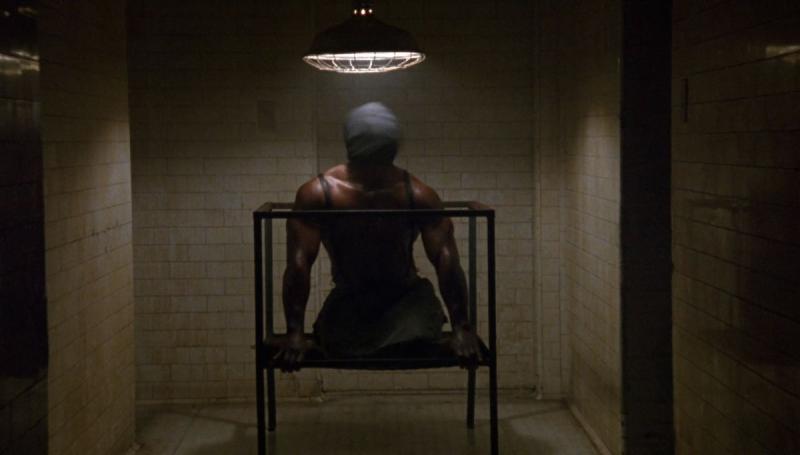How to write an engaging psychological thriller

The psychological thriller genre has long been highly appreciated by the audience and continues to thrive today. Readers love the mix of suspense, psychology, and unsettling revelations that characterize it, making it a highly appealing genre for authors seeking an eager audience. However, to capture readers' attention, it's crucial to create an intriguing and engaging plot that keeps readers on the edge of their seats.
What exactly is a psychological thriller?
It's a genre that seeks to tell stories delving deep into the darkest recesses of the human mind. Often, at least one of the characters is mentally unstable or manipulated in such a way, adding an element of ambiguity and mystery that keeps the reader glued to the page. The unreliable narrator is a key element of this genre, as it constantly keeps the reader on edge.
These books, sometimes referred to as psychological suspense novels, are characterized by a relentless pace, chapters loaded with suspense, and reader engagement until the very last page. They often feature a climax with unexpected twists that surprisingly tie the entire narrative together.
While thrillers by authors like Tom Clancy or Robert Ludlum often feature exceptional characters such as spies, detectives, or special forces operators, psychological thrillers focus on figures closer to everyday life. The protagonist is often an 'ordinary' person with flaws, whose life takes an unexpected turn following a triggering event.
Domestic thriller: A growing psychological subgenre
Among the various subgenres of psychological suspense, domestic thrillers have recently gained increasing popularity. Therefore, it's important to mention them.
The domestic thriller focuses on the relationships between people closest to the protagonist. The main character is often a woman facing deceit from her husband, wife, parent, sibling, friend, or multiple people. The primary tension arises from the protagonist realizing that the greatest threat might come from those closest to her.
Depending on the plot, the terms 'psychological thriller' and 'domestic thriller' can be used interchangeably. As the name suggests, domestic thrillers predominantly unfold in family or domestic settings.
Common tropes in psychological thrillers
Before delving into tropes, it's crucial to understand that they aren't all negative or positive. Some clichés, if overused, can become stale and are better to avoid. However, some are repeated because they meet readers' expectations.
This doesn't mean that all listed clichés must necessarily be included in your psychological thriller. The choice of which ones to use depends on your story and a comprehensive reading of the genre.
- The protagonist experiences internal conflict exacerbated by an external event (the inciting incident).
- Some form of mental health issue plays a significant role in the plot (not necessarily of the protagonist). This could be a diagnosed or undiagnosed mental disorder, paranoia, deep mistrust, growing fear, suspicions, or a gradual decline in mental health.
- Reality is questioned as the story unfolds.
- The protagonist struggles to decide whom to trust.
- A major twist occurs in the climax (there might be more than one).
- The characters are flawed, complex, and realistic.
- Settings are commonplace (home, office, children's school, church, etc.).
- The stakes might not necessarily be life or death, but often involve mental health, madness, well-being, or a ruined life.
- These are just some of the main tropes in psychological thrillers. There are other more specific tropes, such as a child's disappearance, a stranger holding too much information, a family member being the perpetrator of a crime, and many more. The choice of specific tropes can happen as you start writing your story.
However, before starting to write your psychological thriller or story, it's essential to have a good understanding of the genre.
Recommended psychological thrillers to read or watch
Here are some excellent examples of psychological thrillers to better understand the genre. As you read or watch them, observe how they maintain suspense, what you appreciate about the characters, and which elements they share.
- The Silent Patient by Alex Michaelides
- The Housemaid by Freida McFadden
- Gone Girl by Gillian Flynn (Also a movie directed by David Fincher)
- Don't Let Her Stay by Nicola Sanders
- Strangers on a Train by Patricia Highsmith (Also a movie directed by Alfred Hitchcock)
- The Surgeon by Leslie Wolfe
- The Girl on the Train by Paula Hawkins (Also a movie directed by Tate Taylor)
- Keep It in the Family by John Marrs
- Dolores Claiborne by Stephen King (Also a movie directed by Taylor Hackford)
- Big Little Lies by Liane Moriarty (Also a series from HBO)
Search for your subgenre
To succeed as an independent author, it's crucial to consider your book as a product that will be marketed once finished. Although the concept of 'success' can vary from person to person, most want their book to reach as many readers as possible. If that's your goal too, it's important to search for your subgenre before starting.
In the past, on Amazon, one could select up to ten categories for their book, but now only three can be chosen. If you're not already a known author with a reader base, it's crucial to be mindful of which categories to choose for your book.
Choosing the right categories
Fortunately, psychological thriller books can fall into several Amazon subcategories. However, identifying those with the right amount of competition and interested readers can be complex.
There are tools, such as Publisher Rocket, designed for independent authors, enabling genre research in less than an hour instead of spending three or more hours scouring Amazon and trying to gather relevant data.
Perhaps your protagonist is a lawyer, and your thriller might fit into both the legal thriller and psychological fiction genres. Or your story revolves around a crime committed in an otherwise peaceful and safe neighborhood. In this case, it might be both a mystery novel and a psychological suspense novel.
Wisely choosing the three categories is crucial in positioning your book for success.
Tips and suggestions for writing a psychological thriller
Authors of psychological thrillers often find themselves walking a tightrope. They need to provide the reader with enough information to keep them interested without revealing the big twist too early. Well, with the following tips, you can learn to create a story that walks that tightrope, offering an engaging and compelling read.
Decide on the point of view and tense
In creative writing, there are primarily two points of view: first and third person. There are various types of third-person narrators (limited and omniscient) and only one type of first-person narrator. Most psychological thrillers feature a first-person narrator. Some present both a first-person narrator for the protagonist and a third-person narrator for other characters.
The choice of the point of view depends on your preferences. The first-person allows for a more intimate connection between the reader and the protagonist and enables the use of the unreliable narrator cliché. However, it becomes more challenging to conceal important information from the reader without seeming deceptive.
Both types of narrators have their advantages and disadvantages, so reading books in the genre can help understand how great authors use first or third-person perspective to their advantage.
Similarly, you'll need to decide whether to write your story in present or past tense. Most stories are written in the past tense, but the present tense is becoming more common. However, writing a complete novel in the present tense can be more challenging due to limitations associated with this verb tense.
Start with a hook
The best psychological thrillers start with a strong hook to capture the reader's interest. Sometimes, this is depicted through a temporal jump to show the reader what will happen before immersing them in the 'ordinary world' or the character's everyday life. In other situations, the opening scene could be a crime or an unusual event that disrupts the protagonist's life.
In 'The Silent Patient', the novel begins with a terrible murder: a woman brutally kills her husband. However, before getting these details, the first thing we read is a diary entry from the woman describing how much she loves her husband. The actual murder occurs 'off-page,' leaving the reader wondering why a woman who loved her husband would commit such an act and refuse to communicate with anyone afterwards.
The key to a good hook is providing enough information about the protagonist to engage the reader, without dwelling too much on mundane details. Many of these details can be shared with the reader after you've already hooked them.
Focus on your characters
Character development is crucial in psychological thrillers. While the plot plays a vital role in traditional thrillers, both the plot and the characters are equally important in psychological thrillers.
As these thrillers focus on the psychological aspects of one or more individuals, it's essential that the characters are credible and easily identifiable. Having flat characters in crucial roles is a sure way to lose reader interest.
Complex characters, on the other hand, can keep the reader engaged. However, they should be able to provoke the reader to ask themselves, 'What if it happened to me?' This thought shouldn't be hard to imagine. Engaging characters are indispensable in psychological thrillers since most people aren't detectives or spies.
Maintain a fast pace and constant tension
As mentioned, psychological thrillers have a frenetic pace that requires careful explanation. Often, when thinking of a high-paced thriller, one might imagine car chases, explosions, and shootouts. However, this isn't the case with psychological thrillers. That doesn't mean they have a slow pace; on the contrary, it's exactly the opposite.
You can create a high-paced psychological thriller by carefully managing the flow of information to the reader. This helps maintain a high level of tension, revealing small but crucial details. Every new piece of information provided to the reader should further complicate things for the protagonist, leading them to take one step forward and two steps back.
For instance, if the protagonist is looking for their missing child and finds an item of clothing or the child's favorite toy in a neighbor's yard, this unsettlingly involves the neighbors, making both the reader and the protagonist question the mystery. Perhaps, faced with this information, the neighbors start behaving strangely or make cryptic comments to further increase the mystery.
Extraordinary events don't necessarily need to happen in every chapter, but the intrigue must grow gradually and disturbingly.
Pay attention to the antagonist
Not all psychological thrillers have a clear antagonist. Sometimes, the big revelation at the end is that the antagonist is the last person the reader would have suspected. In other instances, the antagonist might be a product of the protagonist's imagination.
In other words, the antagonist doesn't necessarily have to be a person; it could be a mental illness, an addiction, or a past trauma that the protagonist must overcome. However, this doesn't exclude the possibility of a real person being the antagonist, such as a serial killer or a manipulative family member, present in some darker psychological thrillers.
There must be an external force acting against the protagonist, but it's not mandatory for it to be a single clearly identifiable person as the 'bad guy.'
No guarantee of a happy ending
Readers of psychological thrillers shouldn't automatically expect a happy ending. Often, even if the protagonist overcomes their major flaws and manages to overcome the obstacle, they might be deeply changed by the experience, and not necessarily for the better.
Perhaps a loved one isn't who they claim to be. Perhaps the secrets revealed are too devastating to bear. Perhaps the story concludes with the death of someone the protagonist loved. In any case, even a happy ending in psychological thrillers might not be so joyful.
Similarly, some of these thrillers may end without any hope. The protagonist might actually have gone insane or might seem to have a happy ending only because they are completely isolated from the outside world.
The key is not to have a predetermined ending but rather a twist and a significant revelation: this is what readers of psychological thrillers are looking for.
Set realistic goals
Writing fiction requires consistent time and effort. Therefore, it's crucial to set realistic goals that can be achieved on a daily or weekly basis. Even if it's just about writing 1,000 words a week, having a goal will help you maintain consistency and progress in writing your thriller novel.
Conclusion on writing a psychological thriller
Writing a good thriller takes time, commitment, and a deep understanding of readers' expectations of the genre. However, with a solid grasp of the basic principles of psychological thrillers, you can create a unique story appreciated by the market.
Additionally, your book might fit into other subgenres, such as mystery fiction or domestic thrillers. It's important to highlight these features to potential readers through the cover, description, and the first few pages of your book. To ensure you're in line with the reference categories, a tool like Publisher Rocket can provide information directly from Amazon about specific categories in which your book might fit. Using this information, you can optimize your book's presentation to maximize success in Amazon's market.
When you subscribe to the blog, we will send you an e-mail when there are new updates on the site so you wouldn't miss them.
By accepting you will be accessing a service provided by a third-party external to https://www.insightadv.it/


































































Comments